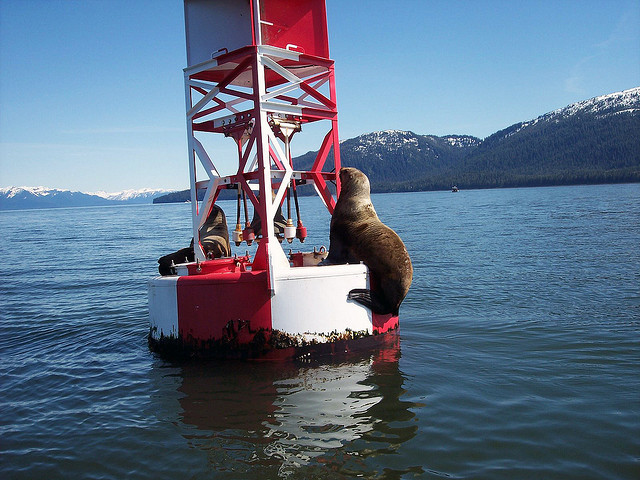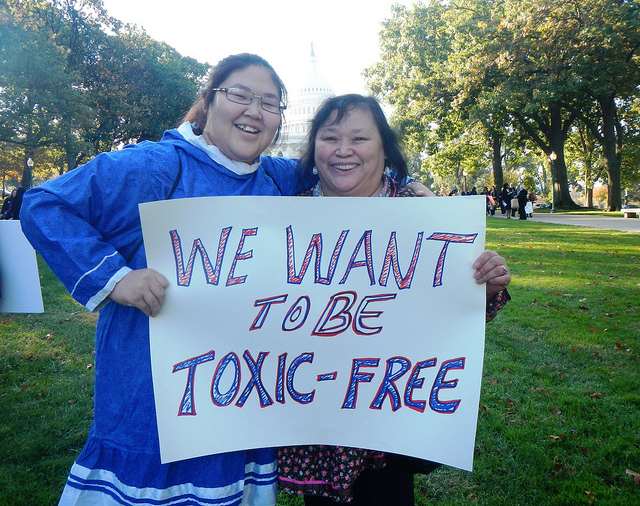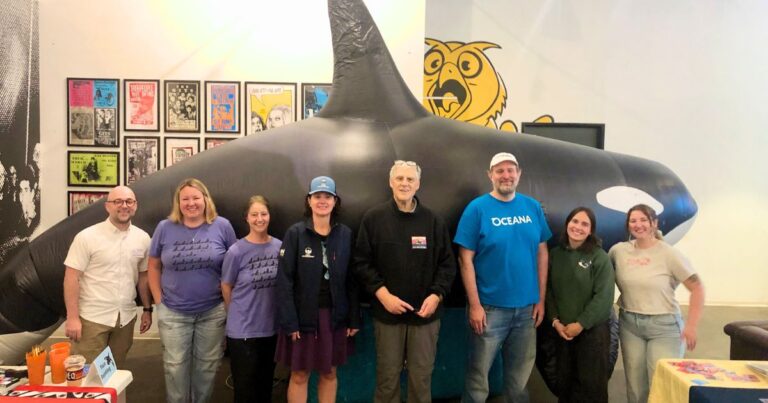The nastiest class of chemicals is on the chopping block. Today, U.S. Senator Merkley introduced a bill today that would ban the most notorious chemicals, known in the scientific community as persistent, bioaccumulative, and toxic or “PBTs.”
We’ve been talking about PBTs for years because of their three nefarious characteristics: they remain in the environment for long periods of time, they build up or accumulate in body tissue, and they are highly toxic. Even worse, they are found in the most sacred food source – breast milk.
As we outlined in our fact sheet about PBTs,
“Because of this combination of properties, the government should take immediate action to phase PBTs out of commerce.”
We applaud today’s introduction of the Protecting America’s Families from Toxic Chemicals Act (S. 2656).
What the bill would do
The bill would allow the Environmental Protection Agency (EPA) to identify and phase out PBTs from commerce within the next five years. It lists 22 known PBT chemicals for which the EPA can decide to skip the identification process and jump straight to phaseout for all but “critical uses” such as national security. You can read our press release on today’s introduction and track the progress of the bill here.
Examples of PBTs
The bill lists 22 known PBT chemicals, many of which may be familiar to you.
Brominated flame retardants
This is a class of several chemicals that are found in consumer products ranging from your living room sofa to your computer or textiles. Brominated flame retardants have several negative health end points including hormone-disruption and, most notably, harm to the brain.
Heavy metals
More commonly known metals like lead, mercury, and cadmium are known PBTs and are called out in the bill as a priority for phaseout.
Asbestos and “musk”
Asbestos is one of the most toxic substances known to humans and yet is still not regulated under our federal chemical laws. This would allow the EPA, for the first time, to actually regulate this known bad actor substance. Other PBTs listed include musk xylene, a common ingredient in fragrances, detergents, and perfumes that has been linked to cancer and reproductive problems and is commonly found in pregnant women and breast milk.
Why PBTs are bad for our health & the environment
As I mentioned above, PBTs are infamous for their three nasty characteristics.

Persistence:
This class of chemicals stays in our bodies and environment. What this means is that even though I was born after the PCBs were (mostly) banned, I have them in my body. In short, these chemicals stick around for a long time.
Bioaccumulation:
Chemicals that bioaccumulate work their way up the food chain; the most well-known example is mercury in fish. Smaller fish have small amounts of mercury in their bodies, but then larger fish eat lots of small fish. When we eat large fish (like tuna) we ingest large amounts of mercury. Blech.
Toxicity:
Most PBTs are linked to toxic effects, most notably harming the developing brain, which raises major concerns for pregnant women and protecting the developing fetus.
Native Alaskans feel the impact

It’s alarming to think of PBT chemicals in your living room, but the problem doesn’t stop there. Take, for example, toxic flame retardants. They were found in more than 85% of couches in the U.S. and they are frequently found in Arctic sea mammals and Alaska Natives’ bodies.
Native Alaskan traditional diets rely heavily on foods like sea mammals, thereby unintentionally ingesting large amounts of PBT chemicals. These communities, focused on preserving their traditions of eating from the land and sea, face endless challenges and adding a heavy “body burden” of toxic chemicals due to the heavy contamination of PBT chemicals is unjust and unfair.
You can read a touching piece by Tiffany, a young woman from St. Lawrence Island, about her time at our recent Stroller Brigade for Safer Chemicals.
How you can get involved
- Join our movement of millions of Americans and ask Congress to take action on toxic chemicals.
- If you’re on Twitter you can thank Senator Merkley by retweeting us here and posting a thank you on his Facebook wall.
BREAKING: Thank you to @SenJeffMerkley for introducing a bill to tackle the most notorious toxic of chemicals: http://t.co/xWtOs2cIb6
— Safer Chemicals (@SaferChemicals) July 24, 2014
We shouldn’t have to sacrifice our health, sacred traditional practices, or safe products. Join us in calling on our government to provide leadership on eliminating known, highly toxic chemicals.



